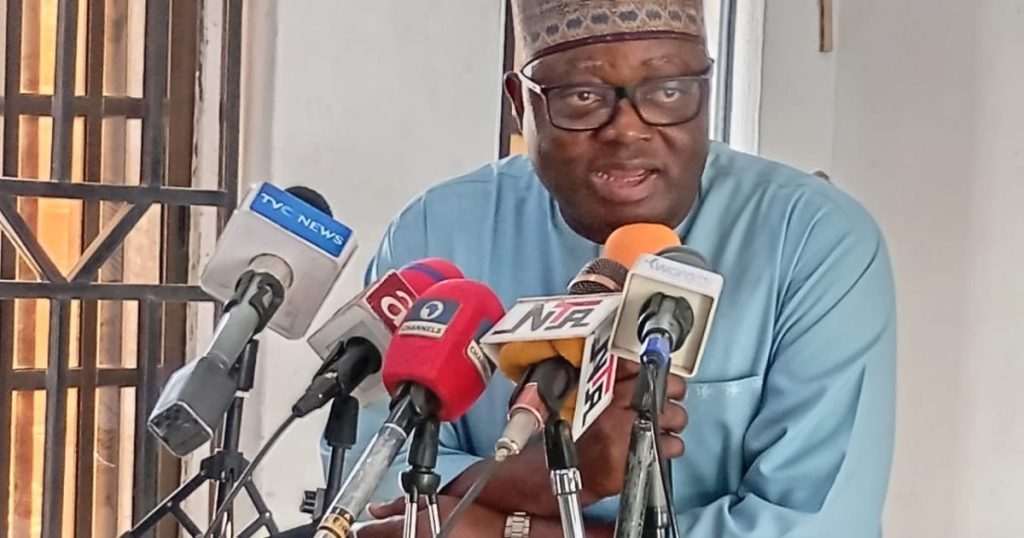Paragraph 1: Renewed Hope and National Transformation
The Director General of the National Orientation Agency (NOA), Lanre Issa-Onilu, has expressed unwavering confidence in President Bola Tinubu’s Renewed Hope Agenda, asserting its potential to transform Nigeria into a nation admired globally. Speaking at a media engagement in Ilorin, Kwara State, Issa-Onilu underscored the necessity of national unity and a collective embrace of change as pivotal elements for achieving sustainable development. He acknowledged the economic challenges inherited by the Tinubu administration, emphasizing the need for a comprehensive overhaul of macroeconomic indicators to pave the way for positive microeconomic impacts. This restructuring, he argued, is essential to setting Nigeria on a path towards economic stability and growth.
Paragraph 2: Addressing Economic Challenges and Fuel Subsidy Removal
Issa-Onilu acknowledged the hardships arising from the removal of fuel subsidies, a policy decision that has sparked widespread debate and economic adjustments. He posited that development often necessitates difficult choices and sacrifices, framing the subsidy removal as a necessary step towards long-term economic viability. While recognizing the immediate pain experienced by citizens, he emphasized the administration’s commitment to steering the country out of its revenue generation challenges. He highlighted the improved debt servicing ratio, which now stands at 63%, leaving 37% of revenue available for expenditure, a significant improvement compared to previous figures. This, he argued, demonstrates the positive impact of the subsidy removal on the nation’s financial health.
Paragraph 3: Restoring Investor Confidence and Boosting Oil Production
The NOA DG pointed to a resurgence of investor confidence in the stock market as a testament to the administration’s economic policies. He attributed this renewed confidence to the removal of fuel subsidies and other reforms aimed at stabilizing the economy. Furthermore, Issa-Onilu highlighted the positive trajectory of the country’s revenue base, with crude oil production exceeding 1.57 million barrels per day for OPEC. This increase, he explained, is partly due to the resolution of long-standing disputes in the Ogoni land, a development he believes will further boost production to 2 million barrels per day in the near future.
Paragraph 4: Reinforcing National Values and Civic Engagement
Beyond economic reforms, Issa-Onilu emphasized the importance of national values and civic engagement. He revealed that the Presidency approved 14 requests from the NOA, outlining seven key pillars that Nigerians must uphold to foster national unity and progress. These pillars encapsulate the core values and principles essential for building a strong and prosperous nation. Furthermore, he announced that the Nigerian Charter will be integrated into the training programs of various security agencies, including the Nigerian Police, Nigeria Security and Civil Defence Corps, and Federal Road Safety Corps, to ensure that security personnel are imbued with these national values.
Paragraph 5: Promoting Conservation and Citizen Participation
The NOA DG urged citizens to embrace conservation efforts as a crucial component of national development. He highlighted the importance of individual responsibility in preserving natural resources and protecting the environment for future generations. He called for a collective effort to promote sustainable practices and ensure the responsible use of resources. Furthermore, he emphasized the need for active citizen participation in national development initiatives, stressing that every Nigerian has a role to play in building a better future.
Paragraph 6: Media Engagement and Public Discourse
The media engagement, organized by the Nigeria Union of Journalists (NUJ) Kwara State Council, provided a platform for public discourse and citizen engagement with government policies and programs. The Chairman of the NUJ Kwara State Council, Mallam Ahmed Abdullateef, underscored the importance of such platforms in educating the public and facilitating dialogue between the government and the citizenry. He urged the government to prioritize policies that have a direct and positive impact on the lives of Nigerians. The event served as an avenue for citizens to voice their concerns, ask questions, and participate in discussions on issues affecting their lives, demonstrating the crucial role of media in fostering transparency and accountability in governance.


